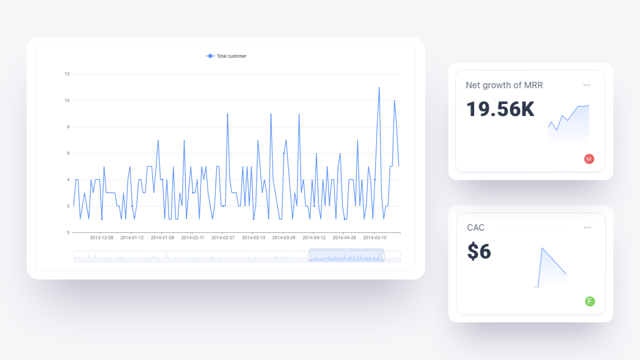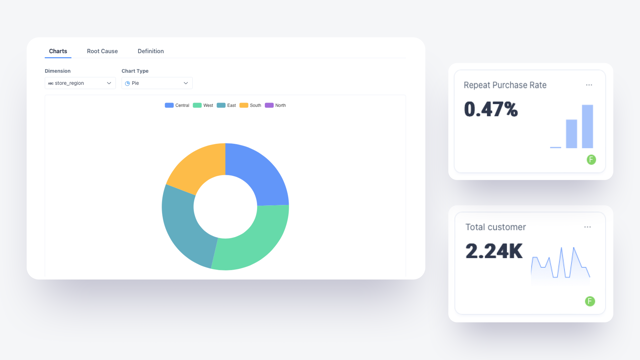Home / Learn / Business Metrics & KPIs / Website Metrics and KPIs
Website Metrics and KPIs
Learn about website metrics and KPIs, who uses them, and why they are important in marketing. Also, discover popular tools for collecting and analyzing website data.
Website Metrics and KPIs Examples
Active Customers
Retail
The total number of unique customers who made at least one purchase during a specified time period.
Average Basket Size
Retail
The average number of products sold per transaction order during a specified time period.
Average Session Duration
Website
The average duration (in seconds) of users' sessions.
Average Time On Page
Website
The average time users spent viewing this page or a set of pages.
Average Transaction Revenue
Retail
The average profit earned per transaction order during a specified time period.
Average Transaction Value
Retail
The average sales amount per transaction order during a specified time period.
Bounce Rate
Website
The percentage of sessions that were not engaged ((Sessions Minus Engaged sessions) divided by Sessions). This metric is returned as a fraction; for example, 0.2761 means 27.61% of sessions were bounces.
Chatbot Conversation Count
Marketing
The number of conversation between the customers and the chatbot on the website
Cost Per Leads
Marketing
The average cost of each Marketing Qualified Leads
More Metrics and KPIs to Explore
Analyze Your Business Metrics & KPIs with Kyligence Zen Today
/
Ⓒ 2023 Kyligence, Inc. All rights reserved.



